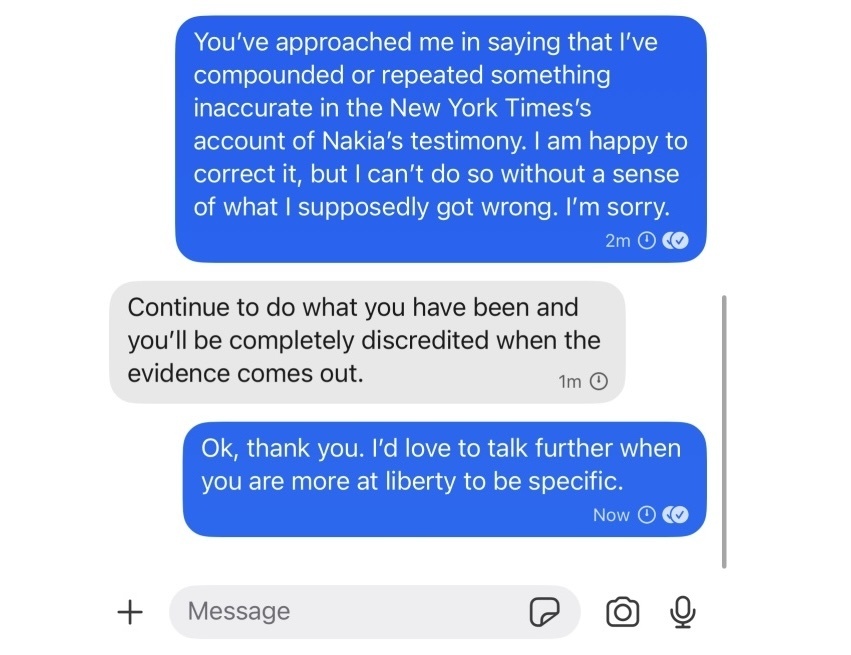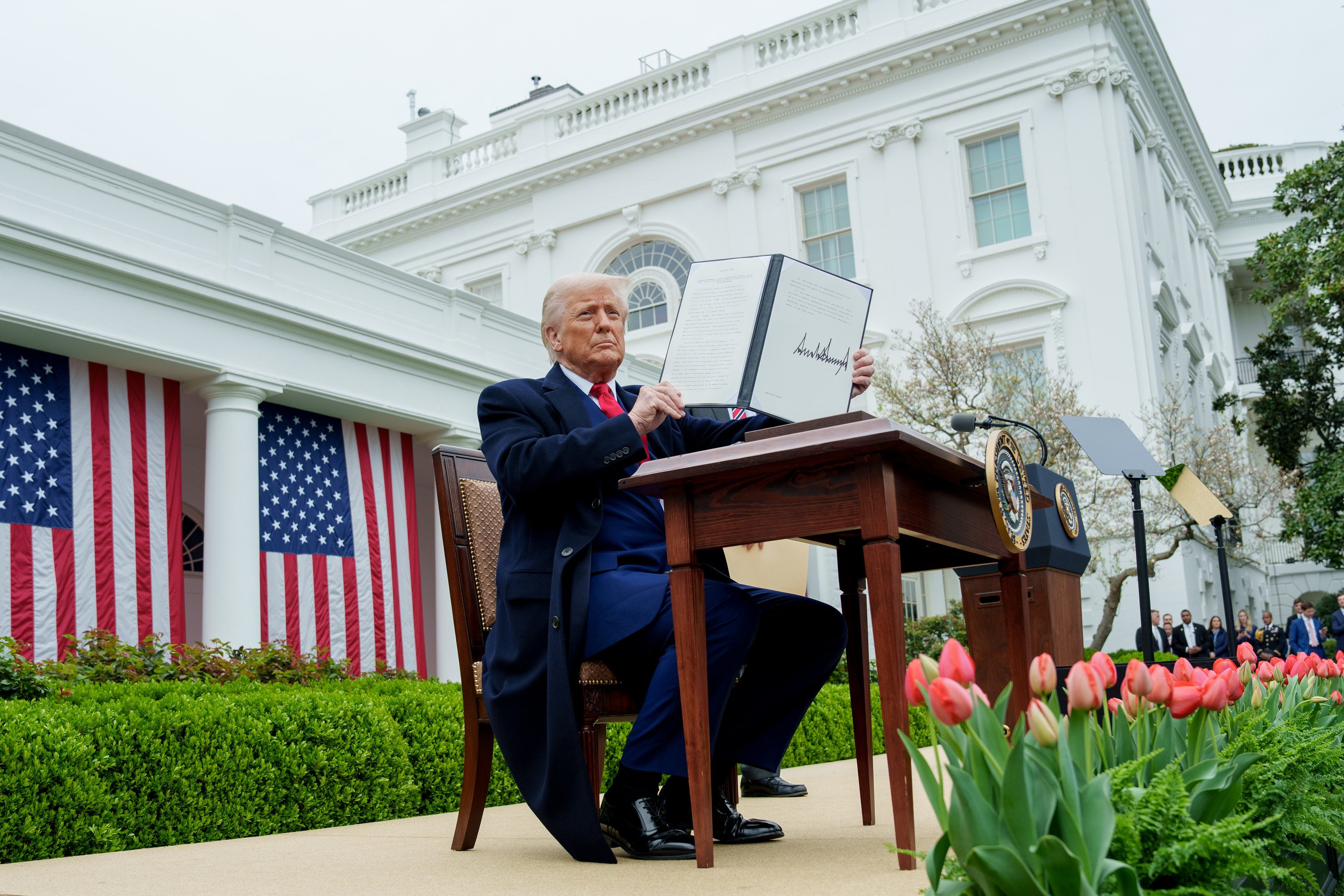How the Supreme Court Should Resolve Zivotofsky
Zivotofsky is an important case because it appears to require the Supreme Court to address the scope of the President’s exclusive foreign relations power vis a vis Congress.
Published by The Lawfare Institute
in Cooperation With

Zivotofsky is an important case because it appears to require the Supreme Court to address the scope of the President’s exclusive foreign relations power vis a vis Congress. This is a very hard question, rarely addressed by the Court, about which the relevant sources (text, original meaning, historical practice) are, in my view, unclear. And yet there is a way to avoid that hard question in the case – to avoid the question under Article II, at least – and still rule for the Executive branch.
The issue is the constitutionality of a federal law that requires the Secretary of State to record “Israel” as the place of birth for a citizen born in Jerusalem who requests the designation. The court below, and the Solicitor General, maintain that this statute intrudes into an exclusive domain of Executive power, and is thus unconstitutional. But there is a prior constitutional question of great significance that the Solicitor General hints at dimly near the end of his brief (pp. 46-48): Where does Congress get the power under Article I to require the designation “Israel” on a passport? The Petitioner says in passing that the legislation “falls squarely within Congress’ power to regulate the issuance of passports.” To which one might ask: What power to regulate the issuance of passports? Article I, Section 8 says nothing on that topic. Congress has, to be sure, long authorized the Secretary to issue passports. It has also enacted laws related to passports in the following contexts (according to Petitioner):
8 U.S.C. § 1365b (biometric entry and exit data system), 8 U.S.C. § 1504 (cancellation of U.S. passports and consular reports of birth), 8 U.S.C. § 1732 (machine-readable, tamper-resistant entry and exit documents), 18 U.S.C. § 1542 (false statement in application and use of passport), 18 U.S.C. § 1543 (forgery or false use of passport), 18 U.S.C. § 1544 (misuse of passport), 22 U.S.C. § 212a (restriction of passports for sex tourism), 22 U.S.C. § 2705 (documentation of citizenship), 22 U.S.C. § 2714 (denial of passports to certain convicted drug traffickers), 22 U.S.C. § 2721 (impermissible basis for denial of passports), and 42 U.S.C. § 652(k) (denial of passports for nonpayment of child support).All of these laws regulate the travel of U.S. passport holders, and can thus plausibly be seen to fall within Congress’s foreign commerce clause power, which plausibly includes the power to regulate the movement of persons across borders. But even accepting these flights into the penumbras of the foreign commerce clause, how does the requirement to designate “Israel” (as opposed to Jerusalem) regulate the movement of persons across borders? I don’t think it does. The statute has nothing at all to do with the regulation of foreign commerce. It is, rather, as its title makes plain, about “United States Policy With Respect to Jerusalem as the Capital of Israel” (my emphasis). Many federal laws properly grounded in Article I – concerning war, foreign commerce, the definition of offenses against the law of nations, and many other topics – can of course affect U.S. foreign policy. But Congress can enact laws related to foreign policy consistent with the Constitution only if the laws have a proper basis in Article I. The foreign commerce clause cannot be that basis. I don’t think the other possible bases for the legislation under Article I fare any better. The requirement to designate “Israel” on the passport has nothing to do with the power to “establish a uniform rule of naturalization.” Nor can it be grounded, I think, in the necessary and proper clause. The reasons why would require more space and time than I now have, but suffice it to say that the statute does not purport to “carry[] into execution” any of Congress’s or the President’s powers. The beauty of ruling against petitioner on the basis of a lack of congressional power for the statute is that it allows the Court to avoid the super-hard problem of defining the contours of exclusive presidential power based on the vague and uncertain textual materials in Article II. In other words, the Court can resolve the case, and mark off a narrow presidential power to determine what country should be designated on a passport, without reaching or discussing Article II (at least not discussing it very much), by focusing instead on the more precise terms of Article I. And for you legal realists out there, this way of resolving the case satisfies two larger imperatives, somewhat in tension, that will certainly be in the back of the minds of many Justices: (1) not wanting to cross swords with the Executive on an important Middle East policy at a very fraught time of Middle East relations; and (2) not wanting to grant the president a large or vague exclusive presidential power related to recognition. The Court can achieve both of these aims by ruling that Congress lacked power to enact this bald foreign policy legislation under Article I. (Note: Prior Lawfare analyses of Zivotofsky include Jodie's preview of the arguments in the merits briefs; Julian Davis Mortenson's comment on the potential Vesting Clause question in the case; my quick reaction to and Samantha Goldstein's summary of the 2013 D.C. Circuit opinion on remand; Alan Rozenshtein's summary of the 2012 Supreme Court opinion holding that Zivotofsky had a justiciable claim;, holding that § 214(d) unconstitutionally infringes upon the President's recognition power.)
Jack Goldsmith is the Learned Hand Professor at Harvard Law School, co-founder of Lawfare, and a Non-Resident Senior Fellow at the American Enterprise Institute. Before coming to Harvard, Professor Goldsmith served as Assistant Attorney General, Office of Legal Counsel from 2003-2004, and Special Counsel to the Department of Defense from 2002-2003.





